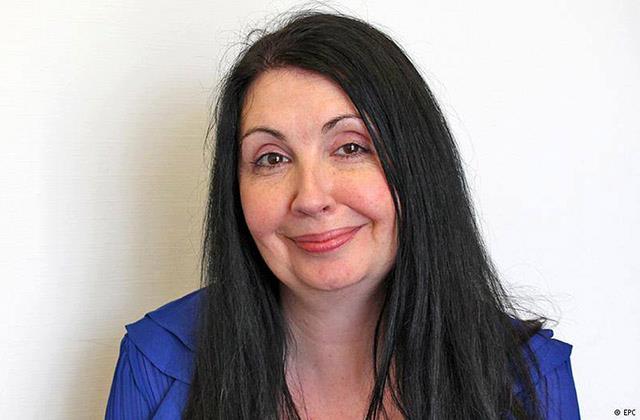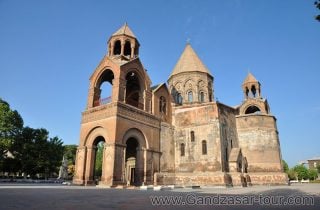Amanda Paul: War by Accident in Nagorno-Karabakh Continues to Increase

Amanda Paul, Senior Policy Analyst at European policy center, geopolitical and foreign policy analyst and journalist, is the interviewee of 168.am. Her main areas of expertise include foreign and domestic policies of Turkey and the Ukraine, Russian foreign policy, the South Caucasus, Eastern Partnership and European Neighborhood Policy (ENP), and conflict resolution (Cyprus and former Soviet space).
-Moscow and Washington came to an agreement on cease-fire in Syria that will come into force since Friday. On account of unsuccessful destiny of accords on Ukrainian conflict, what do you think how stable will this agreement be if it excludes the Islamic State and al-Qaeda-linked Nusra Front terrorist organisations?
Chances of ceasefire holding are slim because the agreement excludes ISIS and al-Nusra Front, and allows air strikes to continue against both of those groups. Turkey has also threatened to continue with artillery strikes against Syrian Kurdish fighters.
-The situation in the Middle East couldn’t but be reflected on Armenia’s foreign policy issues as well. As Russia-Turkey tension is still existent, Armenian experts discuss how Russia would deal with Armenia to perform actions against Turkey or how Turkey will target Armenia to please Azerbaijan and exert pressure on Russia, as Armenia is Russia’s strategic ally? What do you think of likewise scenarios? From what kind of developments Armenia must beware of?
I think that the situation in Syria and the crisis between Russia and Turkey, which has significantly raised tensions, has led to may rumours and conspiracy theories circulating about what Turkey or Russia could do. Clearly the crisis has placed the South Caucasus in a difficult position as it risks to become a victim in the battle between Russia and Turkey. Indeed, Russian President Vladimir Putin, seems set on revenging the downing of a Russian plane over the Turkish-Syrian border on 24th November by the Turkish Airforce, one way or another. I do not believe Turkey is going to take any serious action against Armenia that could significantly deepen the conflict with Russia – this is neither in the benefit of Turkey nor Azerbaijan, nor Armenia or the broader region. Indeed, Baku finds itself in a particularly uncomfortable position and is doing its best to remain quiet because clearly despite Azerbaijan’s close ties and brotherly relations with Turkey, Baku also wants good relations with Russia.
–Reflections of Turkey’s authorities on Nagorno-Karabakh issue have been actively discussed recently, stating that Armenia should return territories of Azerbaijan and NK conflict should be settled. From which standpoint these statements should be perceived? Maybe Turkey wants to participate in NKR issue negotiation process?
It is not news that Turkey states that Armenia needs to return the occupied territories to Azerbaijan. This is clear and is part of the Madrid Principles. Turkey wants a solution to Karabakh issue because the conflict not only represents a huge security threat for the region, but it also hobbles development and prosperity of the South Caucasus region. The question of Ankara, being part of the peace-negotiations, is not on the table, because it is clearly something that Armenia would not accept. That said the current format is stale and it needs to be reinvigorated.
-Azerbaijan is busy with its domestic issues, but sometimes we edify active operations on the border and front line. What can we expect from NK conflict and negotiation process this year, taking into consideration also the fact that Russia is busy in Syria and the Ukraine and regional developments?
The 1994 ceasefire has been under severe strain for several years, with almost daily skirmishes across the Line of Contact. Both Azerbaijan and Armenia continue to carry out provocative actions and sabre-rattling around the front line, including holding large scale military exercises. Tensions have been further heightened by the regional crisis in the Ukraine, Syria and Turkey-Russia standoff. While neither side nor regional powers want to see another war, however, it accidentally continues to increase. It is for this reason that international efforts towards not only conflict management but more importantly conflict resolution must be strengthened and more creative. Furthermore, while Russia is active in Syria, that has not stopped Moscow pushing its influence in the South Caucasus, a coming up with new proposals vis-à-vis Karabakh. Moscow likes to keep Yerevan and Baku on their toes!
– The Islamic Republic’s Deputy Foreign Minister said that Iran is ready to mediate the settlement of Nagorno-Karabakh conflict if Armenia and Azerbaijan want it to. So the question is, if we have OSCE Minsk group format, how do you imagine Iran’s engagement in negotiation process? Will that be productive for conflict resolution?
New initiatives aimed at settling Karabakh issue should be welcomed. Unfortunately, Iran’s last effort, as a mediator in 1992, was not successful, while Azerbaijani and Armenian delegations were in Tehran for the peace talks, Armenian forces took Shusha. However, that does not rule out Iran having another attempt, but of course more will depend on exact details of what they have in mind which is not clear yet.
-European Union and the Republic of Armenia launched negotiations on development of framework agreement. Despite Armenia’s membership to Eurasian Economic Union (EEU), European and Armenian officials claim, new agreement will have both economic and security components in the form of amendments. Against the background of revised Eastern Partnership Neighborhood policy, as well as Armenia’s current external and internal challenges, what do you think, what parties may propose to one another? Can Armenia negotiate free from Russia?
I think that we need to be very realistic over what sort of deal/relationship Armenia is going to have with the EU. Clearly it is not going to cut Armenia free of Russia, because Russia is Armenia’s security guarantor, along with the Kremlin, having a significant stake in Armenia’s economy including in key infrastructure. The EU is not going to take on the role of a security guarantor in the South Caucasus although it might help Armenia to carry out some security sector reform including police reform, etc. That said the new agreement with the EU will still be beneficial to Armenia as it will allow for broader cooperation in several different areas, as well as acting as a road map for modernization and reform to a degree.
By Araks Martirosyan

























